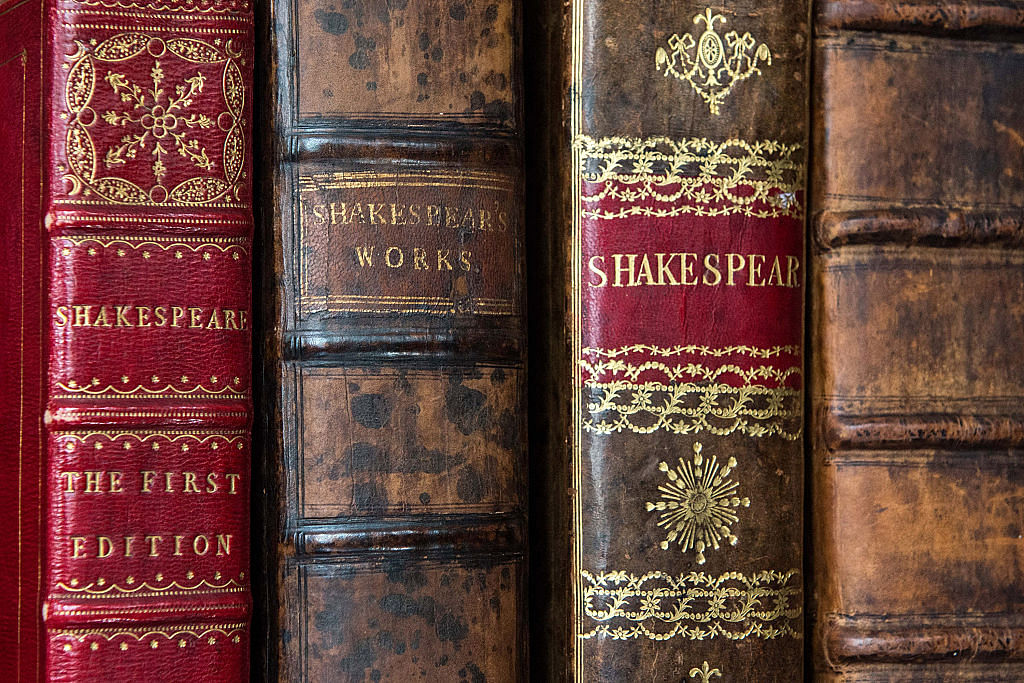
William Shakespeare is like water- infinitely adaptable to his environment, eclectic, and everlasting. Even after four centuries of his death, Shakespeare’s incomparable canon continues to flow--gushing forth like a fountain in the minds of its newest discoverer, gliding along like a rivulet in those it has nourished for years, and lying still--as if bottled--but never stunting, as it lends succour to those that have taken its presence for granted. In the constantly capricious realms of the literary ecosystem, Shakespeare remains immutable, guaranteeing enrichment no matter the time, the place, or the consumer.
A transcendental writer like Shakespeare is bound to remain relevant for every generation, but what is it about his work that makes me -- standing (or rather, bundled up in my bed) in 2020 -- convinced that he matters more than ever before?
First and foremost is the political climate of the present and the uncanny resemblance of its protagonists to unforgettable Shakespearean characters. John Dowd, a former attorney of Donald Trump, is believed to have observed that his erstwhile client behaves like an “aggrieved Shakespearean king”. Indeed, Trump’s mercurial stewardship of the United States of America -- prone to whims, sudden acts of volte-face, and an incomprehensible rationale -- frequently recalls the petulance of Shakespeare’s Richard II, and more selectively, the outrage of a deranged Lear, mad at the irreverence of his subjects (in this case, the mainstream media that Trump so vehemently derides).
Across the Atlantic, Trump’s populist confederate, Boris Johnson, epitomises the Shakespearean archetype of the political clown, a consummate Falstaffian figure with apathy for protocol and political correctness, alternatively gregarious and gross with an unmistakable charade of gullibility. More worryingly still are the autocratic leaders from the rest of the planet -- from Narendra Modi in India to Viktor Orban in Hungary, from Benjamin Netanyahu in Israel to Jair Bolsonaro in Brazil -- who are busy channelling their inner Macbeths, stopping at nothing to cement total control over a people who had once been jubilant at their remarkable rise.
“The art of our necessities is strange
That can make vile things precious” (King Lear, Act III Scene II)
Who would have thought that ventilators, masks, and sanitisers would have emerged as the most essential products in the neo-liberal order of modern capitalism? The coronavirus pandemic has exposed another bitter truth contained in the Shakespearean oeuvre for all the world to witness -- our needs are governed not by our desires, but by our destinies.
Shakespeare’s play, Romeo and Juliet - where plague plays a small but crucial role- is a testament to the precarity involved in controlling the uncontrollable as civic authorities (like the Prince of Verona in the drama) become resigned to sacrifice some lives by prioritising others. Cue to the flirtations with herd immunity and the medical dilemmas facing the world today as hard decisions await in the midst of a public health crisis.
It is not only through his plays that Shakespeare mirrors today’s destabilising reality. His love poetry -- ensconced in 154 sonnets (not all of which are equally memorable) -- becomes a prophetic repository of the complications of modern society -- the intricate intersection of love and lust, the manipulation of passion through algorithms on social media, the emergence of free love through the rise of polyamorous relationships, to name a few.
Shakespearean sonnets, lacking one definitive narrative, do not tell us what to think but show us how to calibrate our thoughts -- a valuable lesson in times where fake news, post-truth, and propagandist politics seek to hijack societal dynamics.
Shakespeare celebrates both the permanence of human connection as well as its ephemerality, reminding us of the fine line between the fleeting and forever. In the end, through his emphatic equivocations, Shakespeare reinstates that we are a bunch of contradictions, with the only uniform resolution being the endurance of the human imagination, animated and exemplified through his genius:
“So long as men can breathe or eyes can see
So long lives this, and this gives life to thee.” (Sonnet 18)
The inherent ambivalence in Shakespeare lends itself to be repurposed for any number of contexts and meanings. A classic example is Shakespeare’s masterpiece, Hamlet, performed largely as scrutiny of existential doubt in the West, but applied to explore state surveillance in Moscow during the Soviet years to cultural decadence in Bucharest under the regime of Nicolae Ceaușescu to the separatist insurgency in Vishal Bhardwaj’s 2014 Bollywood film, Haider.
In an age of great doubt and uncertainty, the purpose of art is not to provide answers but to ask the right questions, and that is precisely what Shakespearean literature manages to do. Even if we cannot bring ourselves to author a play during the ongoing lockdown as Shakespeare is claimed to have done during the plague, this time, more than any other, is appropriate to appreciate what the Bard has left us with -- an unrivalled literary legacy that, just like water, is a crucible of life.
(Priyam Marik is a freelance journalist writing on politics, culture, and sport. He is also a published poet who can be found sampling new cuisines, debating and cheering for FC Barcelona when he's not writing)
Disclaimer: The views expressed above are the author’s own. They do not necessarily reflect the views of DH.